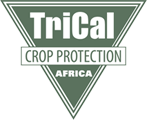Fumigation Crops
Orchard Replant for Pome Fruit, Stone Fruit, and Citrus
Before replanting an orchard, growers are advised to fumigate the soil to prevent replant disease. Replant disease is caused by a build-up of microorganisms in the root zone of the trees, which negatively affects the growth and productivity of new trees planted into the same soil.
Tim Smith, Washington State University extension specialist based in Wenatchee, Washington, estimates that treating replant disease with fumigation boosts fruit yields by a third over the life of an orchard compared with an untreated orchard.
The make-up of Orchard Replant Disease differs from site to site, but we are confident that the various combinations of nematodes and disease can be effectively suppressed with the correct application of Tri-Form 60.
Potatoes
Pre Plant soil fumigation has been proven to have a significantly positive influence on tuber production. Chloropicrin and 1,3Dichloropropene are currently the most effective soil fumigants to manage soil- borne fungal pathogens and nematodes in potato production. Research and on-farm trials have demonstrated the wide-spectrum of fungal pathogens, bacterial pathogens, and plant parasitic nematodes suppressed by our products. Among the most damaging pests in potato production are Verticillium wilt (Verticillium spp.), black dot (Colletotrichum coccodes), common scab (Streptomyces scabies), and lesion nematode (Pratylenchus spp.). Our fumigants will help to manage your target disease and nematode problem that negatively affect quality and yield production.
Onions
Our family of products are the most effective soil fumigants to manage soil-borne pathogens in root crops such as onions. Fumigation allows plant roots to develop in a healthy environment where disease pressure is managed. This allows young crops to develop healthy root systems, which leads to earlier bulb growth, a longer harvest window, and a more efficient use of water and nutrients. The results are vigorous, healthy roots that provide growers the highest yields and quality in onion production.
Carrots
Our products provide outstanding pest control for carrots because soil fumigation creates a large zone of soil around the root area where diseases are suppressed. No current cultural practice in carrot production provides more benefits than soil fumigation. Fumigation with one of our products allows plant roots to develop in an environment where nematodes and certain soil-borne diseases are managed. This results in extensive, healthy root systems, which lead to earlier harvestable root growth, a longer harvest window and better utilization of nutrients and water.
A vigorous, healthy root system gets the crop off to a superior start resulting in larger, quality crop yield. Let us show you how effective our fumigants can be on your carrot crops.
Tobacco
Our fumigants have been found to be some of the most effective in disease management and nematode suppression for tobacco growers. Chloropicrin and 1,3Dichloropropene aid in the prevention of plant stunting in the field which is caused by multiple stress factors. These factors include soil-borne diseases like Granville Wilt and pests such as nematodes. Effects from soil borne pests combine to reduce yield and crop quality. The solution is providing plants a healthy, disease free soil to maximize growth and yield. Our products are multipurpose fumigants which act to manage these pressures while creating a vigorous growing environment for tobacco.
Chloropicrin and 1,3Dichloropropene have proven very effective in numerous university tests at providing enhanced disease and nematode control in the soil. The result is improved plant performance which is a direct result of improving the soil's overall health. Our active ingredients are true fumigants and move easily through the soil breaking down into natural plant nutrients.
The results from using our products can be increased yield, improved quality and higher return on investment.
Strawberries
Soil fumigation has been proven to show increases in strawberry crop yields due to elimination of soil-borne pests.
One major source of strawberry yield loss is Verticillium wilt, a disease caused by the fungal pathogen Verticillium dahliae, which attacks the water-conducting tissue of the plant called the xylem. Infected plants wilt and outer leaves dry and turn brown. The diseased plants often collapse during the peak of the first year's growth. Eventually the entire plant wilts and dies. The fungus has been known to remain in the soil for 25 years. Verticillium and the other major disease and nematode problems that strawberries face can be controlled using our products.
